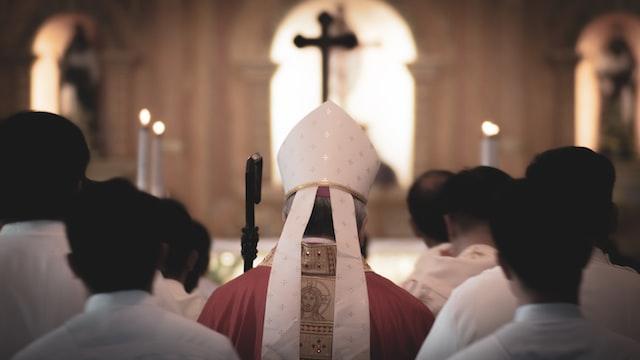
The bishop of Orihuela-Alicante in Spain, José Ignacio Munilla, reminded the Belgian bishops that the blessing of gay unions goes against the teaching of the Catholic Church.
Newsroom (23/09/2022 9:48 PM Gaudium Press) — The prelate underscored in his Sixth Continent program on Radio Maria in Spain that the Belgian bishops’ prayers for the blessing of gay unions are “clearly not compatible” with the declaration of the Congregation for the Doctrine of the Faith on this issue that was published March 15, 2021. “It’s not that the Church doesn’t love. It’s that she has no authority to do such a thing,” he cautioned.
Munilla stressed that this incompatibility is manifest “no matter how much they’ve tried to force (the meaning of) words to the maximum,” calling the Belgian bishops’ initiative a “moment for prayer.”
The Belgian Bishops’ Conference spokesman, Jesuit Father Tommy Scholtes, defended the blessing of same-sex couples since “it has nothing to do with marriage.”
In a statement to the Associated Press, Scholtes said it’s “an opportunity for homosexual couples to pray together and for others to pray for them as well.”
Munilla noted that the Belgian bishops’ blessing includes “expressions of commitment” between the homosexual persons who receive it and the commitment of an ecclesial community.
“Let’s not play with words,” the bishop reiterated, pointing out that “we must be sincere and transparent and say that it absolutely contradicts” what was affirmed by the Congregation for the Doctrine of the Faith.
Munilla emphasized that what the Vatican dicastery has stated “is not that the Church doesn’t love. It’s that she has no authority to do such a thing” as bless homosexual unions.
Blessings are sacramentals
The Church has no such authority because a blessing is sacramental. According to the Catechism of the Catholic Church, No. 1667, sacramentals “are sacred signs which bear a resemblance to the sacraments. They signify effects, particularly of a spiritual nature, which are obtained through the intercession of the Church.”
The text continues: “By them men are disposed to receive the chief effect of the sacraments, and various occasions in life are rendered holy.”
The Spanish bishop explained that blessings “must be objectively and positively ordered to the will of God” and that “the goodwill of those who receive them is not enough.”
There is no ‘unjust discrimination”
Thus, “it’s not lawful to impart a blessing on these relationships, even if they are stable, because they imply a sexual relationship outside of marriage,” the bishop explained, in line with what was stated by the Congregation for the Doctrine of the Faith.
For example, Munilla pointed out that the Church cannot bless the union between a man and a woman living in adultery.
Thus, it’s not about “unjust discrimination” against people with homosexual inclinations but about reclaiming “the truth of the liturgical act.”
“You can bless people with homosexual inclinations, but not a union that is not in accordance with the design of nature and God’s design,” the prelate stressed, because “it’s one thing to bless the sinner and another thing to bless the sin.”
Munilla said that, unlike the sacraments, sacramentals “can be received without being in the state of grace, but they call for conversion.”
– Raju Hasmukh with files from CNA